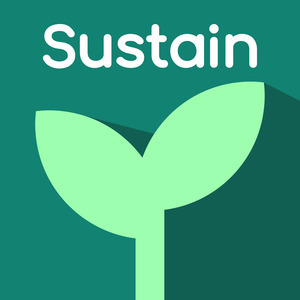Episode 212
Carlos Martinez-Ortiz & Shoaib Sufi on WoSSS (Workshop on Sustainable Software Sustainability)
December 15th, 2023
38 mins 56 secs
About this Episode
Guests
Carlos Martinez-Ortiz | Shoaib Sufi
Panelist
Richard Littauer
Show Notes
In this episode, Richards welcomes his two guests, Carlos Martinez, Scientific Community Manager at the Netherlands eScience center, and Shoaib Sufi, Community Lead at the Software Sustainability Institute. They both represent a vibrant community dedicated to the long-term sustainability of research software and open source projects in the sciences. Today, our discussion navigates the “WoSSS” (Workshop on Sustainable Software Sustainability) and its evolution, taking a deep dive into the challenges and solutions surrounding software sustainability. They explore the crossroads of open source and research software and the importance of funding for such sustainable efforts. Additionally, they reflect on the future of workshops, hinting at potential refinements to address evolving community needs. This episode emphasizes the need for knowledge exchange, networking, and community building while contemplating future pathways in this evolving field. Hit download now to hear more!
[00:01:25] The WoSSS refers to efforts to look at the long-term sustainability of software research and other sectors. It involves various organizations and alliances interested in software sustainability.
[00:03:15] Shoaib discusses the relationship between open source software and research software, highlighting that they share common principles and methods, though they may not always be driven by the same goals.
[00:04:12] Shoaib provides clarification about the funding of the Software Sustainability Institute, explaining that it’s funded by multiple UK research and innovation funding agencies.
[00:05:00] Carlos explains that the Netherlands eScience center is the national center for research software expertise in the Netherlands, focusing on developing research software with a strong preference for open source licensing.
[00:06:32] Shoaib and Carlos discuss the origins and evolution of the WoSSS, which started as a knowledge exchange workshop and expanded to cover various topics related to research software sustainability, preservation, and infrastructure.
[00:08:43] Richard inquires about the types of community members who participate in WoSSS workshops. Shoaib mentions that the workshops aim to bring together funders, leaders, middle managers, developers, and individuals interested in research software sustainability to foster discussions.
[00:10:19] Carlos explains the concept of “sustained software sustainability” as a pyramid with research software at the top, followed by the need to sustain it and the creation of a research landscape that supports long-term software sustainability efforts.
[00:13:35] Shoaib mentions that the workshops aim to benefit participants by offering opportunities for them to contribute and discuss topics, crating reports to recognize their contributions. He explains that participants include individuals empowered by their universities to share information within their institutions.
[00:17:41] Richard questions whether the participants who attend these workshops are often empowered by their institutions to share the knowledge they gain, and he also asks about the tools provided to help them communicate with researchers. Carlos emphasizes the importance of networking opportunities during the workshops, where participants can connect with people in the field who share similar challenges and goals.
[00:19:12] Shoaib discusses the role of Research Software Engineering (RSE) groups at universities, which often perform functions similar to OSPOs in terms of supporting research software development and training. He provides an example of a case where a research group decided to use a restrictive open source license to retain control of their IP for commercial purposes.
[00:22:54] Shoaib summarizes the key takeaways from the workshops, including the importance of FAIR Principles for Research Software and the need for ongoing software sustainability.
[00:25:04] Shoaib explains that there’s been a desire to merge WSBI and WoSSS but that the future direction of WoSSS is being considered. Carlos reflects on how evolving landscape of similar workshops and initiatives has prompted the need for reflection on the future direction of WoSSS. Shoaib emphasizes the need to determine the purpose and audience of WoSSS in the future.
[00:29:13] We learn that WoSSS is currently in a period of reflection, and future directions for it are being considered.
[00:32:49] Shoaib shares final thoughts and talks about the project around research software quality, which is bringing various research infrastructures together. He also mentions the hidden REF.
Spotlight
- [00:34:30] Richard’s spotlight is Ross Mounce, Director of Open Access Programs at Arcadia.
- [00:35:04] Carlos’s spotlight is Hedy, a programming language for teaching children how to get into programming.
- [00:35:49] Shoaib’s spotlight is The People and Projects Podcast, the TalkPython Podcast, and the Center for Scientific Collaboration and Community Engagement (CSCCE).
Links
- SustainOSS
- SustainOSS Twitter
- SustainOSS Discourse
- podcast@sustainoss.org
- SustainOSS Mastodon
- Open Collective-SustainOSS (Contribute)
- Richard Littauer Mastodon
- Carlos Martinez Mastodon
- Carlos Martinez LinkedIn
- Dr. Carlos Martinez-Ortiz-Netherlands eScience center
- Shoaib Sufi Twitter
- Shoaib Sufi LinkedIn
- Shoaib Sufi-Software Sustainability Institute
- Report on the Workshop on Sustainable Software Sustainability 2021-Zenodo
- WoSSS
- Society of Research Software Engineering
- Introducing the FAIR Principles for research software-scientific data
- FAIR Principles for Research Software (FAIR4RS Principles)-Zenodo
- RDA & ReSA: Policies in Research Organisations for Research Software (PRO4RS)
- ADORE.software
- the hidden REF
- Ross Mounce LinkedIn
- Hedy
- The People and Projects Podcast
- TalkPython Podcast
- CSCCE: Center for Scientific Collaboration and Community Engagement
Credits
- Produced by Richard Littauer
- Edited by Paul M. Bahr at Peachtree Sound
- Show notes by DeAnn Bahr Peachtree Sound
